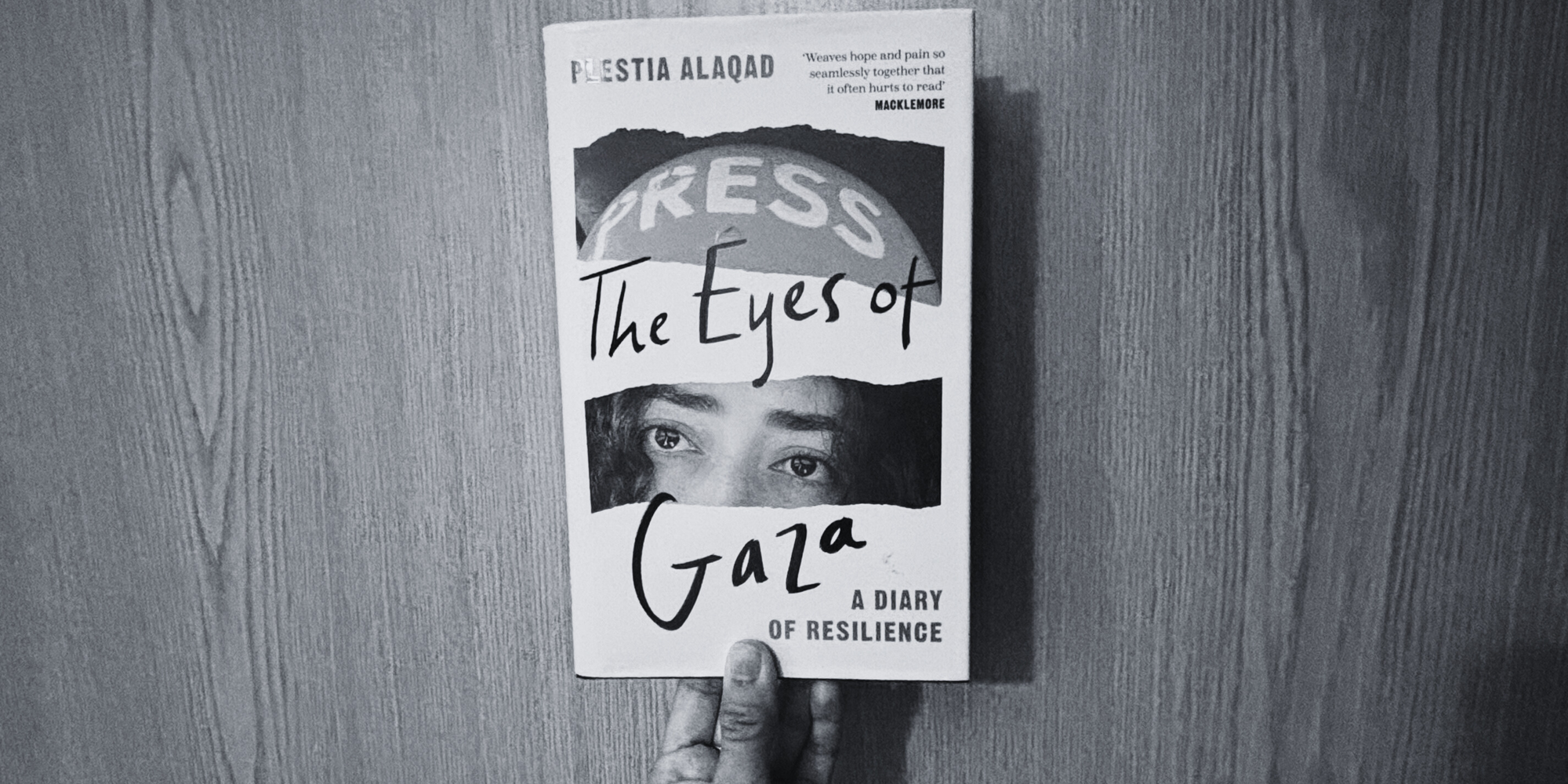Book Review: The Eyes of Gaza

What is it about?
It is a diary entry account of Plestia Alaqad, a 21‑year‑old Palestinian journalist who lived in Gaza for the first 45 days following the outbreak of war in Gaza in October 2023. It is a story of violence, tragedy, and the unimaginable destruction that war brings. But it is also a story of the indomitable human spirit, of people carrying with them the weight of destroyed homes, lost family members, and shattered lives, yet still finding the strength to go on.
Why it appealed to me?
Personally, I’m not someone who follows geopolitics closely. I often feel too naive to fully grasp who’s right, who’s wrong, or where it all began. But what shocks me is that, in this day and age, such misery still exists around us. Since 2023, the news has been filled with stories of wars in different countries, and hearing about missile attacks and destruction has, disturbingly, started to feel normal. It’s deeply distressing.
I came across this book on a blog before it had even been released. I waited a few months for it to come out and got my copy as soon as I could. What piqued my interest was a simple question: What is it like to actually be in that situation? What is it like in Gaza—a place I honestly knew very little about before the war began?
Lately, I’ve been feeling this strange discomfort inside me - a growing awareness of how oblivious we sometimes are to the world around us, and how easily we take our privileged lives for granted. Like right now, as I write this blog, I’m full from dinner, wrapped in a blanket, feeling comfortable in my bed. And while that may seem like a normal evening, the harsh truth is: it’s not. I’m living a version of life that thousands of people are dreaming of at this very moment and that realisation breaks my heart.
The book begins with Plestia’s life looking just like any other 21 year old’s - hanging out with friends, spending time with family, figuring out university plans, and dreaming big. And then, in a single day, everything changes. The tone of the book shifts to stories of displacement, unimaginable trauma, the constant fear of losing loved ones, of losing limbs, and the terrifying thought of preferring death over the pain of survival.
What struck me most was how raw it all felt. There were days when Plestia had the strength to write - to capture stories of people who deserved to be remembered, even if only in a diary. But there were also days she simply couldn’t. The pain swallowed her words. And somehow, that silence spoke even louder.
What moved me even more was the dual role Plestia played, she wasn’t just a journalist reporting from the outside. She was living through the war herself, and yet, found the strength to hold up a camera or write a few lines so the world could see what was happening. All we could see or read about were facts and numbers so far on the news- but when you read what a person feels and witnesses every day in a war, its much more deeper than that - it’s about the father who can’t find his children, the girl who carries her books through rubble, the friend she never gets to see again. Through her entries, you begin to understand that war isn’t just destruction, it’s absence, fear, and the unimaginable burden of survival.
And if you are lucky enough, like Plestia was, to somehow get out of the war, you are physically separated but emotionally still there. You carry the weight of survivor’s guilt, the pain of leaving behind those you grew up with, your friends, the people you knew and wanted to save, yet somehow, you survive.
Should you read it?
Yes, if you want to witness what war truly feels like, without having to live through it. Read it to recognise how much we take for granted, to reflect on the fragility of normal life, and to honour the stories of people who deserve to be remembered. Read it not for facts or figures, but to sit with someone else’s pain, even if just for a few pages.
I’ll be honest - it’s not an easy read. I felt very emotional while reading it. Some entries were so raw and heavy that I had to pause, take a breath, and let it sink in. But perhaps that’s what makes it so important, because feeling even a glimpse of someone else’s reality can change how we see the world.
Don’t read it expecting geopolitical analysis or historical breakdowns. This book doesn’t try to teach you who’s right or wrong. It doesn’t push a stance. It simply asks you to listen. To witness. To understand. And for someone like me, who has never felt informed enough to take sides but can recognise human suffering when I see it - that’s what made it so powerful and unforgettable.

